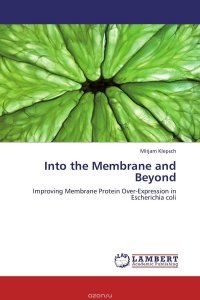Membrane proteins fulfil a wide variety of essential functions in the cell and many are (potential) drug targets. Since their natural abundance is usually very low, most membrane proteins have to be over-expressed for functional and structural studies. Unfortunately, over-expression of membrane proteins in E. coli is usually toxic. I have studied the effects of the expression of membrane proteins, including the human KDEL receptor, on BL21(DE3) and its derivatives. Saturation of the Sec translocon, a cytoplasmic membrane associated protein conducting channel that mediates the insertion/ biogenesis of membrane proteins, appeared to be the prime reason for the toxicity of membrane protein over-expression. The obtained data have resulted in many leads and ideas to further improve membrane protein over-expression yields in E. coli, e.g. we have engineered a plasmid (pLemo) that helps avoiding saturation of the Sec translocon upon membrane protein over-expression in E. coli. Это и многое другое вы найдете в книге Into the Membrane and Beyond (Mirjam Klepsch)
Into the Membrane and Beyond Mirjam Klepsch
Подробная информация о книге «Into the Membrane and Beyond Mirjam Klepsch». Сайт не предоставляет возможности читать онлайн или скачать бесплатно книгу «Into the Membrane and Beyond Mirjam Klepsch»
